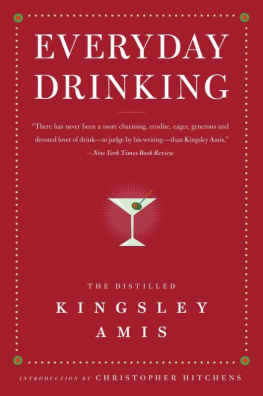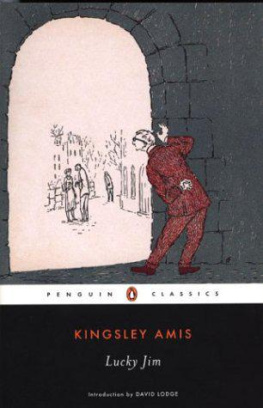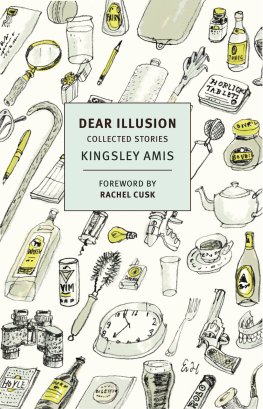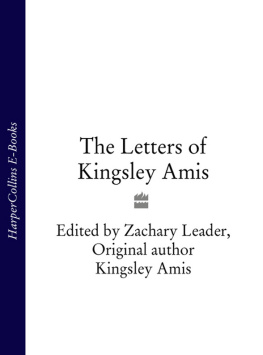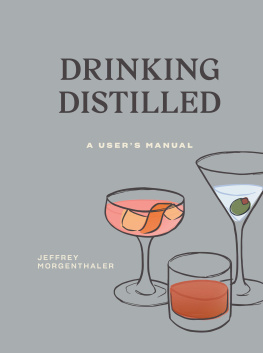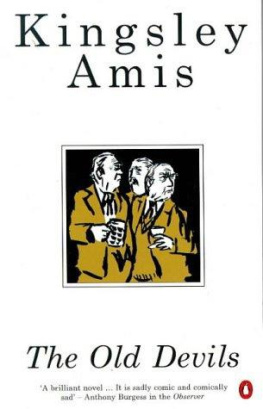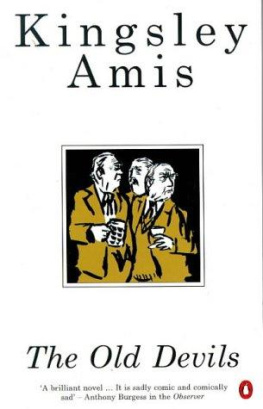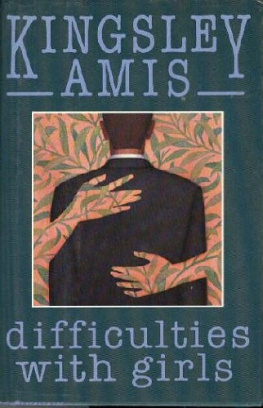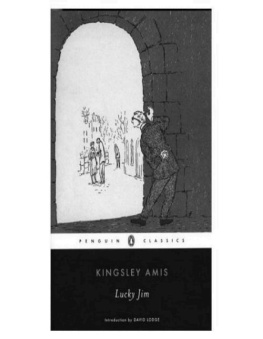
EVERYDAY DRINKING
THE DISTILLED
Kingsley Amis

Copyright 2008 by The Literary Estate of Sir Kingsley Amis
All rights reserved. No part of this book may be used or reproduced in any manner whatsoever without written permission from the publisher except in the case of brief quotations embodied in critical articles or reviews. For information address Bloomsbury USA, 175 Fifth Avenue, New York, NY 10010.
Published by Bloomsbury USA, New York
LIBRARY OF CONGRESS CATALOGING-IN-PUBLICATION DATA HAS BEEN APPLIED FOR.
First published by Bloomsbury USA in 2008
This e-book edition published in 2010
eISBN: 978-1-59691-528-2
www.bloomsburyusa.com
CONTENTS
by Christopher Hitchens
(Incorporating Mean Slags Guide)
Introduction
THE MUSE OF BOOZE
ITS REASONABLY WELL known that the arts of brewing and fermenting arose in nice time for the dawn of human civilization (there are ancient poems and mosaics and that sort of thing, dedicated to the celebration of the fact), but its at least as notorious that an opened flask of alcohol is a mouth that can lead to hell as well as heaven. This being the caseand one day we shall work out the etymology that leads us to use the simple Italian word for a bottle, fiasco, in the way that we dothen it is as well to have a true Virgil to be our guide through the regions infernal as well as paradisiac.
The late Sir Kingsley Amis (who wrote these slender but thoughtful volumes before receiving his knighthood and who was also the expert to consult on things like the derivation of fiasco) was what the Irish call your man when it came to the subject of drink. More perhaps even than of Graham Greene, of whom he once wrote a short biography, it could be said that the booze was his muse. I cannot think of any of his fictional work in which it does not play a role, and in several of his novels that role is dominant. (The famous hangover scene in Lucky Jim, not equaled for alcoholic comedy in our literature even by Shakespeares night porter or portly knight, has only one rival that I can call to mind, and that is Peter Fallows appalling waking moment in Tom Wolfes The Bonfire of the Vanities.) Fiascos apart, other Amis books like One Fat Englishman and The Green Man contain some incidentally sapient advice about how to keep drinking and yet remain functional.
It has been said that alcohol is a good servant and a bad master. Nice try. The plain fact is that it makes other people, and indeed life itself, a good deal less boring. Kingsley grasped this essential fact very early in life, and (so to speak) never let go of the insight. This does not mean that there are not wine bores, single-malt bores, and people who become even more boring when they themselves have a tipple. You will meet them, and learn how to recognize them (and also how to deal with them) in these pages.
In my opinion Kingerswhich I was allowed to call himwas himself a very slight cocktail bore. Or, at least, he had to affect to be such in order to bang out a regular column on drinks for the pages of a magazine aimed at the male population. In real life, Amis was a no-nonsense drinker with little inclination to waste a good barmans time with fussy instructions. However, there was an exception which I think I can diagnose in retrospect, and it is related to his strong admiration for the novels of Ian Fleming. What is James Bond really doing when he specifies the kind of martini he wants and how he wants it? He is telling the barman (or bartender if you must) that he knows what he is talking about and is not to be messed around. I learned the same lesson when I was a restaurant and bar critic for the City Paper in Washington, D.C. Having long been annoyed by people who called knowingly for, say, a Dewars and water instead of a scotch and water, I decided to ask a trusted barman what I got if I didnt specify a brand or label. The answer was a confidential jerk of the thumb in the direction of a villainous-looking tartanshaded jug under the bar. The situation was even grimmer with gin and vodka and became abysmal with white wine, a thing I still cant bear to hear being ordered. If you dont state a clear preference, then your drink is like a bad game of poker or a hasty drug transaction: It is whatever the dealer says it is. Please do try to bear this in mind.
A tremendous thing about the Kingsome of us were even allowed to call him that, toowas his abhorrence of meanness. From him I learned the gruff rule of his own house, which was more warm if less polite than his civil Hows Your Glass? It ran: Ill pour you the first one and after that, if you dont have one, its your own f***ing fault. You know where it is. (I have ever since told this to all my guests.) From these pages you will learnsee the Mean Sods and Mean Slags sectionof the stern attitude he took to any parsimony. With alcoholic ritual, the whole point is generosity. If you open a bottle of wine, for heavens sake have the grace to throw away the damn cork. If you are a guest and not a host, dont find yourself having to drop your glass and then exclaim (as Amis once did in my hearing) Ohthank heavens it was empty. The sort of host who requires that hint is the sort of host you should have avoided in the first place.
On the sometimes-penitential consequences of generosity, do by all means consult the brilliant chapter on the physical and metaphysical hangover. It is a piece of selfless research, undertaken by a pioneer. It can save much avoidable pain and, to my certain knowledge, has done so. Thanks to Zachary Leaders excellent biography, the world now knows what Kingsleys innumerable friends had come to realize, which is that the booze got to him in the end, and robbed him of his wit and charm as well as of his health. But not everybody can take their own advice, or not forever, and the cheerful and wise counsel offered here will not lead you, dear reader, far astray. Winston Churchill once boasted that he himself had got more out of drink than it had taken out of him and, life being the wager that it is, was quite probably not wrong in that. In these pages, we meet another man who made it work for him, and for others, too.
CHRISTOPHER HITCHENS
Christopher Hitchens is a columnist for Vanity Fair and a visiting professor of liberal studies at the New School in New York City.
THE BOOKS THAT make up this collectionOn Drink, Every Day Drinking (from which weve borrowed a title), and Hows Your Glasswere written by Amis between 1971 and 1984, a busy period that produced eight other books and a handful of edited volumes. They represent the work of a man whose interest in alcohol somewhat transcended the merely casual. Indeed, Amis was a drinkereven a drink-ista scholar and practitioner and, perhaps above all, a connoisseur.
Despite his occasional claims of ignorance, his knowledge of drink was stunning, even encyclopedic. And being encyclopedic, these volumes seem best presented in their unabridged state. This creates a certain amount of overlap in spots; like all drinking companions, Amis occasionally repeats himself. But like the very best of them, he is unfailingly entertaining, and to miss his second hilarious dissertation on Albanian wine, or Speyside scotch, or the affront of lager and lime, merely because there had been another one elsewhere in the book would be as self-denying as passing up a Laphroig simply because youd had a Glenfiddich earlier in the evening.
Next page
